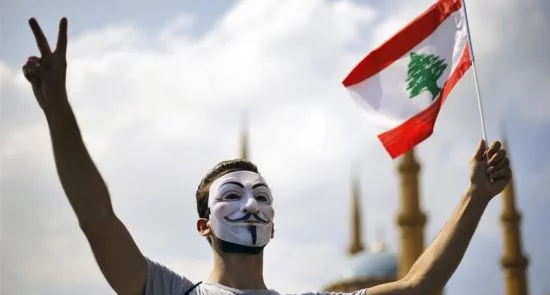Asia May 2, 2020
Short Link:Lebanon, Small Middle East Country in Severe Economic and Financial Crisis
Lebanon is mired in its worst economic and financial crisis since the end of its 1975-1990 civil war, exacerbated by the eruption in October 2019 of angry popular protests.
Ariana News agency-
On Thursday Prime Minister Hassan Diab said the country would ask for aid from the International Monetary Fund (IMF) after the government adopted an economic rescue plan.
Here are some key facts about Lebanon, a small multi-confessional country wracked by years of political crisis, a weakened economy and the fallout of the Syrian conflict.
Colossal debt
For the first time in its history, Lebanon announced in March it was defaulting on its payments.
According to the ratings agency Standard and Poor’s (S&P), it is sagging under a debt of $92 billion, equal to nearly 170 percent of its gross domestic product, one of the highest debt ratios in the world.
Measures it has adopted to deal with the spread of the novel coronavirus have brought the economy to a near halt, via the closure of shops and restaurants.
Since October 2019, Lebanon has been rocked by mass protests against what is seen as a corrupt and incompetent political system.
Lebanon is ranked 137th out of 180 countries on Transparency International’s corruption index.
The country lags in development in areas such as water supply, electricity production and waste treatment.
A welcome lifeline for Lebanon came in 2018, when aid pledges worth more than $11 billion were made at a Paris conference.
But the pledged money has been blocked due to a lack of promised reforms.
According to official figures, 45 percent of Lebanon’s population now lives below the poverty line.
Multi-confessional
The country with the cedar tree flag is one of the Middle East’s smallest, with an area of about 10,000 square kilometres (3,900 square miles).
Washed to the west by the Mediterranean, it shares borders with Syria and Israel.
Lebanon is considered relatively liberal in a generally conservative region, but religion remains all-important.
A crucible for 18 religious communities, its governance has been dictated by a power-sharing deal between the main sects.
Lebanon is a parliamentary republic, with a 128-member house split between Muslims and Christians.
In line with the “national pact” dating from independence in 1943, the president must be a Maronite Christian, the prime minister a Sunni Muslim and the parliament speaker a Shiite.
The country went through a civil war between 1975 and 1990 and was under Syrian guardianship from the 1990s until its troops withdrew in 2005.
Its political institutions have long been paralysed by disagreement between pro and anti-Syrians.
In 2013 the powerful Shiite movement Hezbollah said it was fighting alongside the troops of Syrian President Bashar al-Assad, its involvement dividing the Lebanese political scene even more.
Iran-backed Hezbollah is the sworn enemy of Israel, against which it fought a war in 2006.
-Syrian conflict spillover
The Syria conflict has sporadically spilled over into Lebanon, with several attacks rocking the capital Beirut and other regions.
The most visible impact of the Syrian war in Lebanon, a country of around 4.5 million people, has been the influx of an estimated 1.5 million refugees.
Lebanon and international organisations have on several occasions sounded the alarm over the economic and social burden this massive inrush poses.
– Summer festivals –
Lebanon hosts three prestigious summer arts festivals — Baalbeck, Beiteddine and Byblos — which are major attractions for tourists.










